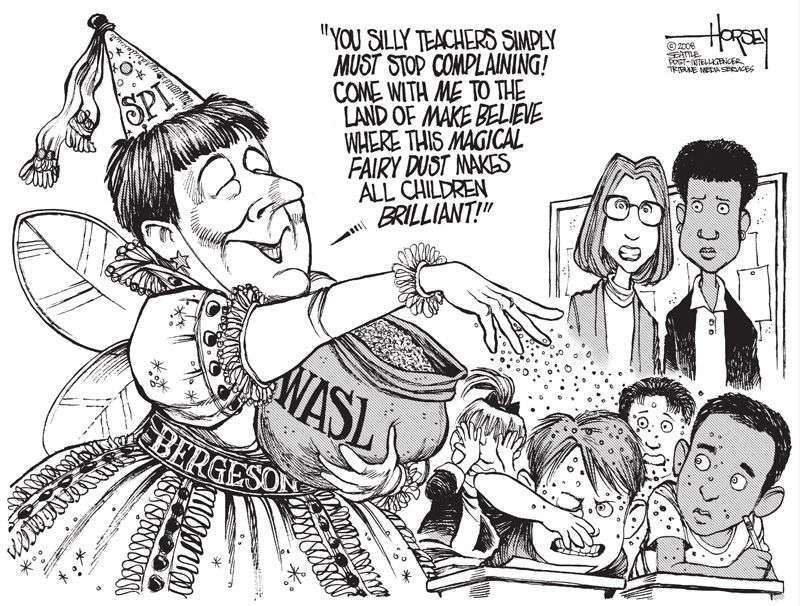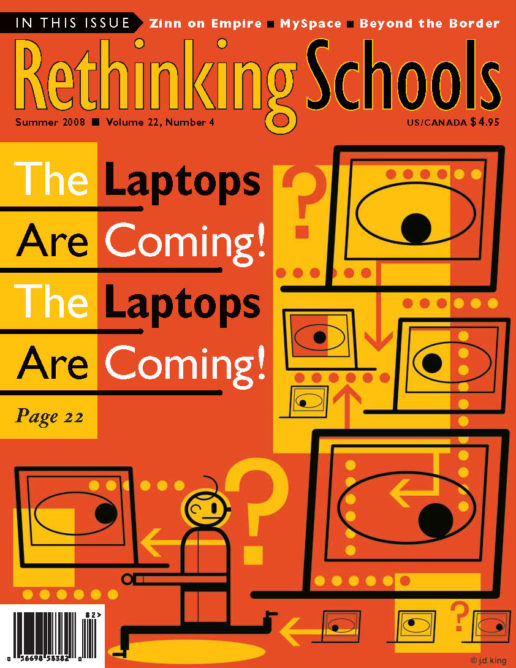Short Stuff 22.4

New Era, New Agenda
Federal education policy is “inconsistent and shortsighted,” despite more than two decades of reform sparked by the release of A Nation at Risk, according to the Forum for Education and Democracy.
The group urges the government to fully fund federal commitments to low-income students, refocus research on educators’ needs, and invest in a “Marshall plan” for teachers and school leaders. Democracy at Risk: The Need for a New Federal Policy in Education is intended to be a “road map for federal policy, to guide a new president, secretary of education, and Congress as they debate the Elementary and Secondary Education Act,” the group says.
“While other countries have made strategic investments and transformed their schools to produce results, we have demanded results without investing in or transforming schools,” says Stanford Professor Linda Darling-Hammond, a convener of the Forum who also co-authored the report.
The Forum says its proposals can be funded for $29 billion annually.
“The spending will more than pay for itself in increased economic activity and reduced spending on remediation programs,” the Forum says.
The report is available to the public on www.forumforeducation.org.
Seattle Teacher Just Says No
A local act of defiance by a 6th-grade teacher in Seattle gained national attention in the continuing argument over standardized tests.
In late April, Carl Chew, a middle school science teacher in the Seattle Public Schools, rebuffed national, state, and district rules when he declined to give his students the Washington Assessment of Student Learning (WASL). The district suspended Chew for two weeks without pay. Union officials believe this is the first case in which a teacher was suspended for refusing to give the WASL to students.
“I have let my administration know that I will no longer give the WASL to my students,” Chew wrote in an email published in the Seattle Post-Intelligencer. “I have done this because of the personal, moral, and ethical conviction that the WASL is harmful to students, teachers, schools, and families.”
Among Chew’s objections to WASL include his belief the test is “written in the language of white, middle- and upper-class students,” the test is presented to students in a “secretive, cold, sterile, and inhumane fashion,” and numerous questions are unclear and misleading.
While the district termed Chew’s decision as gross insubordination and at least one news columnist called it “petulant,” progressive activists and teacher groups have gone on the record in support of Chew.
“Carl Chew is saying ‘No!’ to high-stakes testing and a resounding ‘Yes!’ to student needs and to teacher professionalism,” says Susan Ohanian, an education activist and author.
The Parent Empowerment Network presented Chew with a $200 check to help alleviate lost wages. Other groups also pledged contributions.
This isn’t the first time issues surrounding the WASL have gained national attention. In 2005, a 4th-grade student was suspended for five days for failing to finish the test.
Texas Test Brings Out Worst
In a sign that America’s test-score mania has its clear downside, a Texas middle school principal is accused of threatening to kill a group of science teachers if standardized tests scores of their students didn’t improve.
The San Antonio Express-News reports that the principal allegedly made the threat to 8th-grade science teachers, saying that if Texas Assessment of Knowledge and Skills scores didn’t meet expectations, he would “kill you all and kill myself.”

